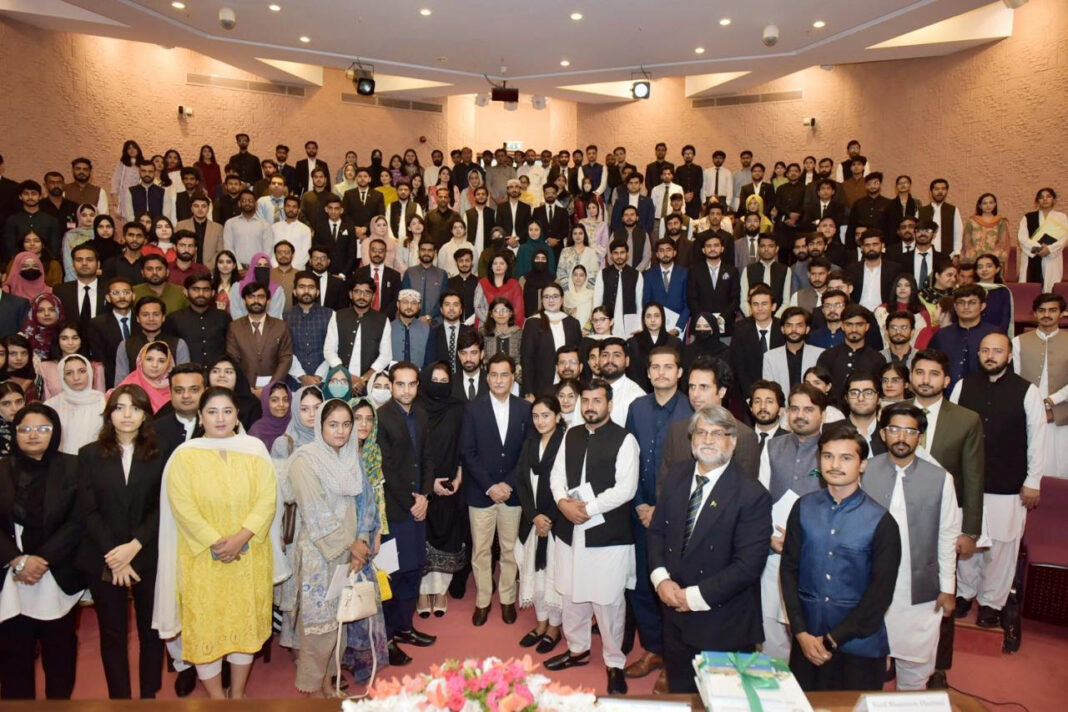By: Maira Nadeem
Sectarian divisions refer to the groups based on different logics, faith, cultures, traditions and purposes. It often clarifies the importance of Islam; it is essential to reappraise the Quranic perspective on Muslim identity. The Quran, as the foundational scripture of Islam, indicate the unity of believers under the orders of submission to Allah and the guidance of Prophet Muhammad (peace be upon him). According to the fact Quran does not categorize Muslims into sectarian groups like Sunni or Shia; rather, it highlights the important and basic principles that unite all people.
The question arises: why do Muslim believers’ identities often based on the labels of Shia or Sunni? Let’s clarify this concept. The identification of a believer in Islam has one label: Muslim. The Quran and Hadith highlight the concept of unity and do not define sectarian divisions. For instance, in Surah Al-An’am, Verse 159, the Quran condemns the division of religion into sects.
إِنَّ ٱلَّذِينَ فَرَّقُوا۟ دِينَهُمْ وَكَانُوا۟ شِيَعًۭا لَّسْتَ مِنْهُمْ فِى شَىْءٍ ۚ إِنَّمَآ أَمْرُهُمْ إِلَى ٱللَّهِ ثُمَّ يُنَبِّئُهُم بِمَا كَانُوا۟ يَفْعَلُونَ ١٥٩
Indeed, you ˹O Prophet˺ are not responsible whatsoever for those who have divided their faith and split into sects. Their judgment rests only with Allah. And He will inform them of what they used to do.
Consider a scenario: a person born Christian decides in their twenties to accept Islam. What label should they adopt? Are they Sunni, Shia, or what? How can they determine their sect? This dilemma highlights a critical point: the only identity of a Muslim is simply “Muslim,” underline faith in Allah and obedience to the teachings of Prophet Muhammad (peace be upon him). Sectarian labels should not depend on this fundamental identity. Embracing Islam involves embracing its core principles of monotheism and submission to Allah, rather than adopting sectarian distinctions that can lead to division within the community.
Thus, while cultural and traditional background factors have led to the concepts of Shia and Sunni identities, particularly in matters of jurisprudence and traditional interpretation, it is necessary to remember that these labels do not define the value of one’s faith. Every human being, upon accepting Islam, joins a universal brotherhood and sisterhood of believers united in their devotion to Allah, irrespective of sectarian affiliations.
In Surah Al-Baqarah, Verse 136, Allah declares:
قُولُوٓا۟ ءَامَنَّا بِٱللَّهِ وَمَآ أُنزِلَ إِلَيْنَا وَمَآ أُنزِلَ إِلَىٰٓ إِبْرَٰهِـۧمَ وَإِسْمَـٰعِيلَ وَإِسْحَـٰقَ وَيَعْقُوبَ وَٱلْأَسْبَاطِ وَمَآ أُوتِىَ مُوسَىٰ وَعِيسَىٰ وَمَآ أُوتِىَ ٱلنَّبِيُّونَ مِن رَّبِّهِمْ لَا نُفَرِّقُ بَيْنَ أَحَدٍۢ مِّنْهُمْ وَنَحْنُ لَهُۥ مُسْلِمُونَ 136
“Say, [O believers], ‘We have believed in Allah and what has been revealed to us and what has been revealed to Abraham and Ishmael and Isaac and Jacob and the Descendants and what was given to Moses and Jesus and what was given to the prophets from their Lord. We make no distinction between any of them, and we are Muslims [in submission] to Him.’
This verse defines the importance of Muslim identity: belief in Allah, the prophets, and the scriptures. It does not highlight the values between different sects or groups within Islam but rather unites all believers under the one roof of submission to Allah’s will.
The concept of Sunni and Shia recognition emerged historically due to differences in jurisprudence and leadership succession, rather than from Quranic direction. These identities, while culturally important, should not overshadow on the shared based beliefs that bind all Muslims together.
To promote unity within the Muslim community and beyond, it is vitally important to respect and value of Quranic teachings that highlight tolerance, respect, and unity among believers. Education plays an essential role in scatter misunderstandings and promoting a holistic understanding of Islam. Initiatives promoting inter-sectarian dialogue, mutual respect, and cooperation are important in building bridges and overcoming traditional background grievances.
In conclusion, As Muslims, it is obligatory upon us to focus on the Quranic teachings that emphasize unity and reject divisions among believers. By embracing our shared faith, concepts and values, and by transcending sectarian identities, we can mutually strive towards a more cohesive and harmonious Muslim society. Let us heed the Quran’s call for unity and understanding, identifying that our strength lies in our diversity united under the roof of Islam.





